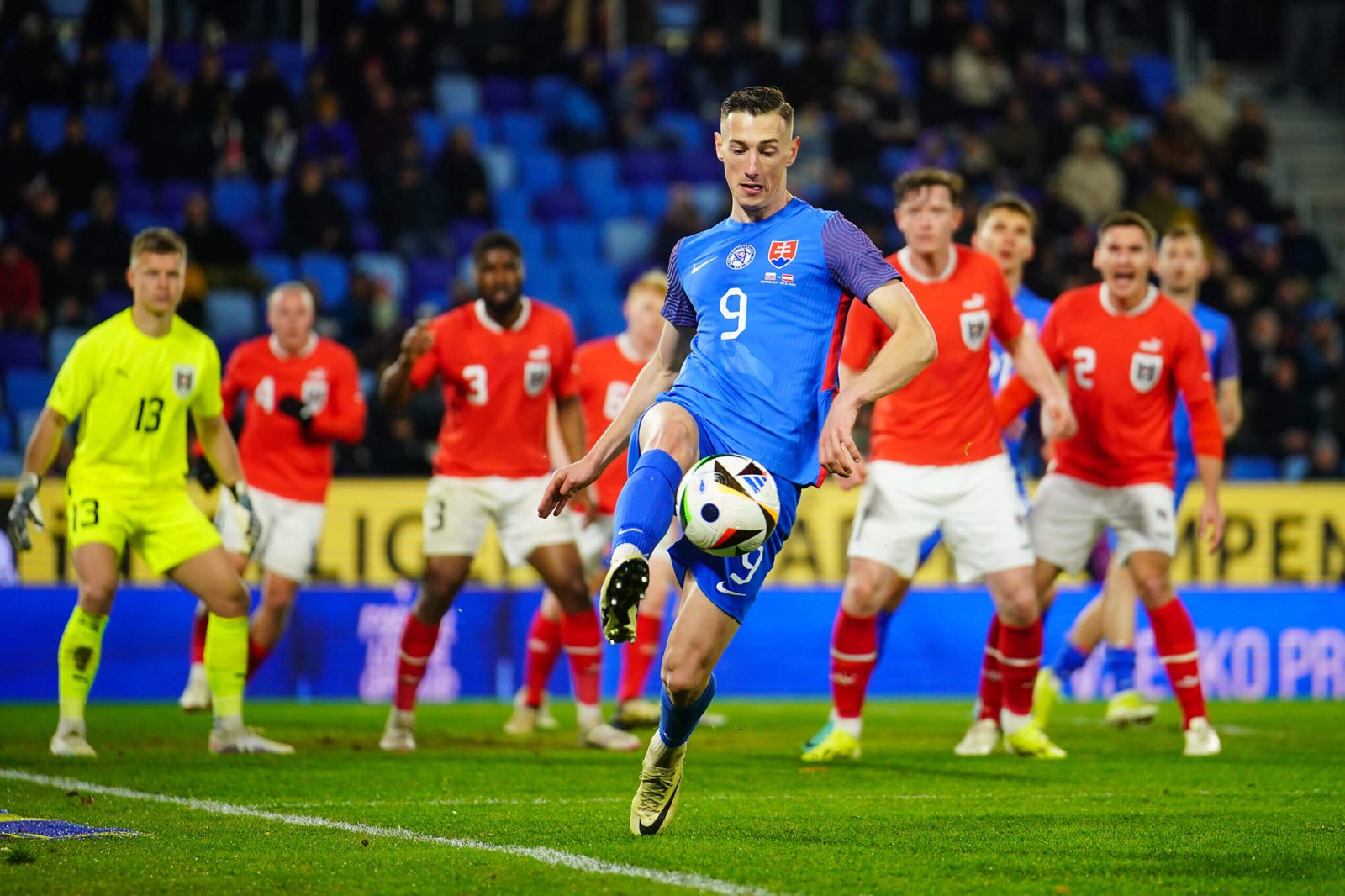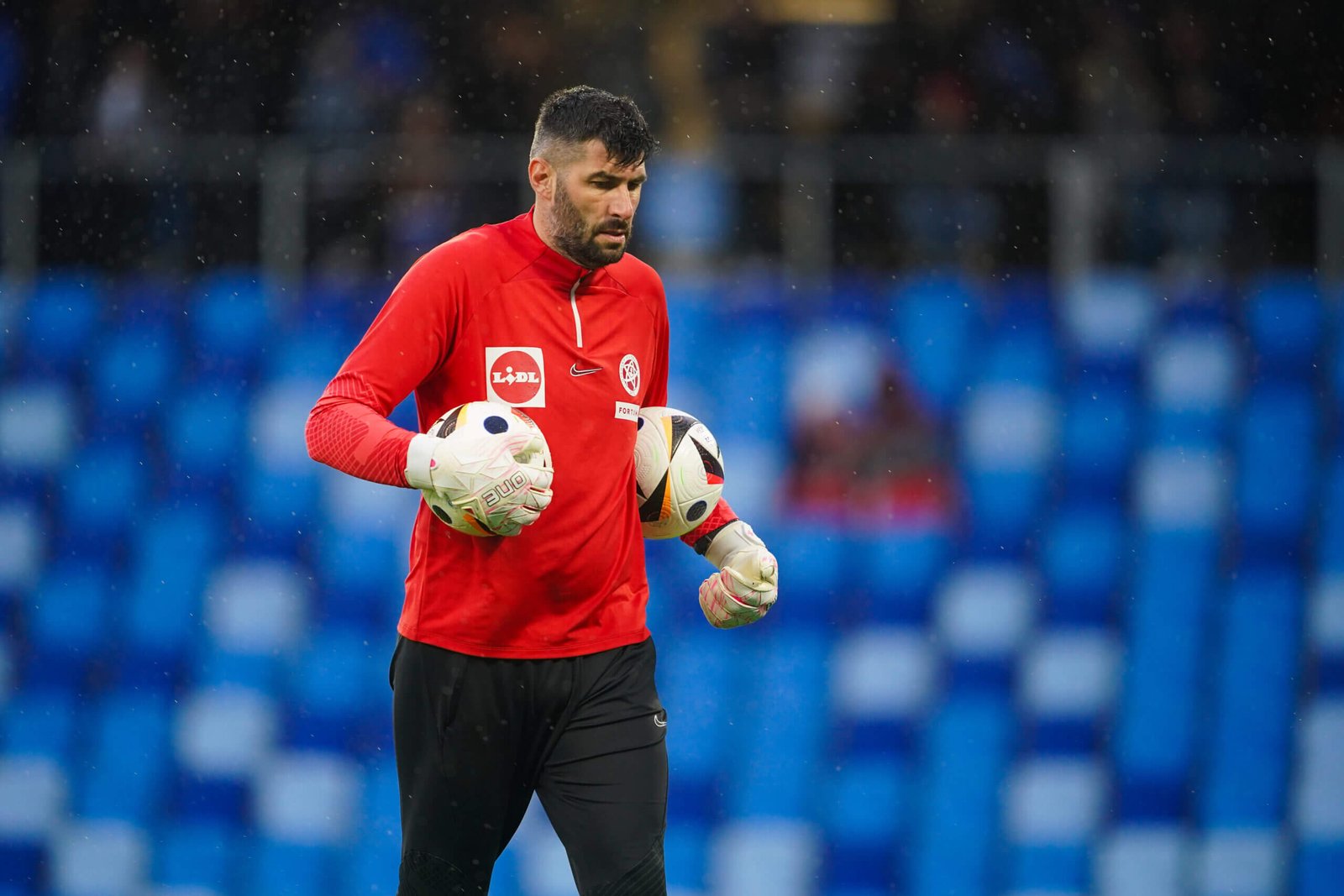Slovakia had an impressive qualification campaign and what they lack in a talismanic striker, they may just make up for with experienced veterans across their squad…
The manager
There can’t be many more unusual stories in international management than Francesco Calzona.
Calzona didn’t have much of a playing career to speak of and, in fact, split his younger days between amateur football and selling coffee. He eventually became part of Maurizio Sarri’s coaching staff at five clubs, including his most successful years at Napoli, which is where the seeds of his appointment as Slovakia manager were sown.
At Napoli, he forged a close relationship with midfielder Marek Hamsik, Slovakia’s former captain and record appearance-maker. So when the national team were looking for a new boss in 2022, Hamsik recommended his old coach, who at the time was working under Luciano Spalletti.
How to follow Euro 2024 on The Athletic…
Calzona’s appointment was initially viewed with significant scepticism, but that disappeared pretty quickly. Their qualification campaign got off to a deeply unpromising start, drawing 0-0 with Luxembourg, but after that, they won every game apart from the two against runaway group winners Portugal, and in the end, breezed through an ostensibly tricky group that also featured Bosnia and Herzegovina and Iceland. With qualification wrapped up, Calzona was free to temporarily moonlight as the top man back at Napoli after both Rudi Garcia and Walter Mazzarri came and went. His spell there didn’t go brilliantly (he only won four games), but it didn’t harm his standing in his adopted country.
Hamsik is part of his backroom staff, partly because of his standing within Slovak football but also to afford him as many opportunities as possible to say “I told you so”. Possibly.
Francesco Calzona moonlighted as Napoli boss last season (Francesco Pecoraro/Getty Images)
The household name in waiting
It’s a relatively experienced squad, with two 37-year-olds and not too many players under 25, but one young bolter who might make an impression off the bench is Tomas Suslov, who was voted Hellas Verona’s player of the year as they survived in Serie A.
However, maybe the man to keep an eye on is forward Robert Bozenik. He lost his way slightly after being viewed as the next bright young thing of Slovak football when he came through at Zilina, with a move to Feyenoord in 2019 resulting in just four goals across three seasons, but he has been revitalised after moving to Boavista in Portugal — initially on loan and then permanently last summer. He scored eight goals in 15 games last season and while it might be a concern that the last of those came in February, in a Slovakia team that is looking for a reliable source of goals, Bozenik could be the man they look to.

Robert Bozenik is expected to lead the line for Slovakia at Euro 2024 (Christian Hofer/Getty Images)
Strengths
It feels like quite a boring thing to highlight as a positive, but there’s a lot to be said for a settled team and the core of Slovakia’s team is very settled indeed.
Unless the sky caves in on their collective heads, the midfield three will be 37-year-old Juraj Kucka, Ondrej Duda and Stanislav Lobotka, the latter of whom will know the coach inside out having worked with him at both Napoli as well as the national team.
The defence looks fairly set, too; centred on Paris Saint-Germain’s Milan Skriniar and left-back David Hancko, who has been the subject of much transfer talk already this summer after a fine season with Feyenoord, while Newcastle’s Martin Dubravka will be in goal. The identity of the front three is slightly more up in the air, but generally speaking, the group that took them from the very start of qualifying to the tournament proper will be there in Germany.
Weaknesses
Slovakia don’t really have an established goalscorer — or at least someone the team know they can turn to when things are getting hairy. Hamsik retired in 2022 and despite coming back for an emergency curtain call in 2023, he won’t be around to dig anyone out of any holes this time. Experienced stalwart Robert Mak hasn’t made the squad, which is possibly not a huge surprise given he has been playing in Australia and didn’t exactly bang them in last season, but he was their highest active goalscorer following Hamsik’s retirement.
Could the man be Bozenik? Robert Polievka led the line in the early stages of qualifying but he’s yet to register an international goal. Winger Lukas Haraslin was their top scorer in qualifying, but he only got three.
The flip side of this is that they shared their goals around: 11 different players scored in the qualifiers, so perhaps it’s a sign that Slovak goalscoring is a team endeavour and unlike some smaller nations, they don’t have to rely on a single superstar to succeed.
Thing you didn’t know
Slovakia’s participation at Euro 2024 might be an emotional moment for Jan Novota, their goalkeeping coach. Novota was a goalkeeper with a relatively modest playing career, his longest spell in one place being with Rapid Vienna in Austria. In 2017, he had just signed for Debrecen, the Hungarian team, when medical tests revealed he had an enlarged aorta, almost twice as big as it was supposed to be, and he was forced to retire on medical grounds. “It would be life-threatening (to play on),” he said at the time.
Novota only won four caps for his country but was a relatively late developer and had been in squads in the year that he retired: he might still have been playing and able to join his country at Euro 2020 were it not for his condition.
But in 2023, after joining the staff of Slovak club Komarno, he was appointed as the national team’s goalkeeping coach by Calzona and will be with the squad in Germany. It might not be the same as playing at a major tournament, but given everything Novota has gone through, it will be a pretty good second-best.

Jan Novota has stepped into coaching after his career was brought to a premature end (Christian Hofer/Getty Images)
Expectations back home
An interesting one. Slovakia went out disappointingly in the group stages at Euro 2020 and after being drawn in a theoretically quite tricky qualifying pool, they might have limited their ambitions to simply being there.
But the ease with which they cruised through those qualifiers might convince people that something rather more might actually be realistic.
Slovakia’s provisional squad
Goalkeepers: Martin Dubravka (Newcastle United), Marek Rodak (Fulham), Henrik Ravas (New England), Dominik Takacs (Spartak Trnava).
Defence: Peter Pekarik (Hertha Berlin), Michal Tomic (Slavia Prague), Matus Kmet (Trencin), Norbert Gyomber (Salernitana), Denis Vavro (Copenhagen), Milan Skriniar (PSG), Adam Aubert (Cagliari), David Hanko (Feyenoord), Vernon De Marko (Hatta), Sebastian Kosa (Spartak Trnava).
Midfielders: Jakub Kadak (Lucerne), Matus Bero (Bochum), Juraj Kucka (Slovan Bratislava), Tomasz Rigo (Banik), Patrik Groszowski (Genk), Stanislav Lobotka (Napoli), Ondrej Duda (Verona), Dominik Holly (Jablonec), Laszlo Benes (Hamburg).
Forwards: David Durisz (Ascoli), Tomas Suslov (Verona), Ivan Sranc (Slavia Prague), Robert Bozhenik (Boavista), David Strelec (Slovan Bratislava), Robert Polijevka (Dukla Banska Bistrica), Lubomir Tupta (Liberec), Leo Sauer (Feyenoord), Lukas Haraslin (Sparta Prague).
(Top photo: Getty Images; design: Eamonn Dalton)
Read the full article here


